Inhalt: [-]
Whether Windows 10 or 11: In the summer of 2024, Microsoft stopped the usual pranks such as pulling network cables, entering incorrect account details and /oobe/BypassNRO. But there is still a way to bypass the Microsoft account constraint, which I’ll show you here.
Tested with the current Windows 10 Home ISO loaded directly from Microsoft.
Step 1
With the annoying Microsoft account constraint, we press Shift F10 and the command prompt opens.
Then we enter „regedit“ and the registry editor opens.
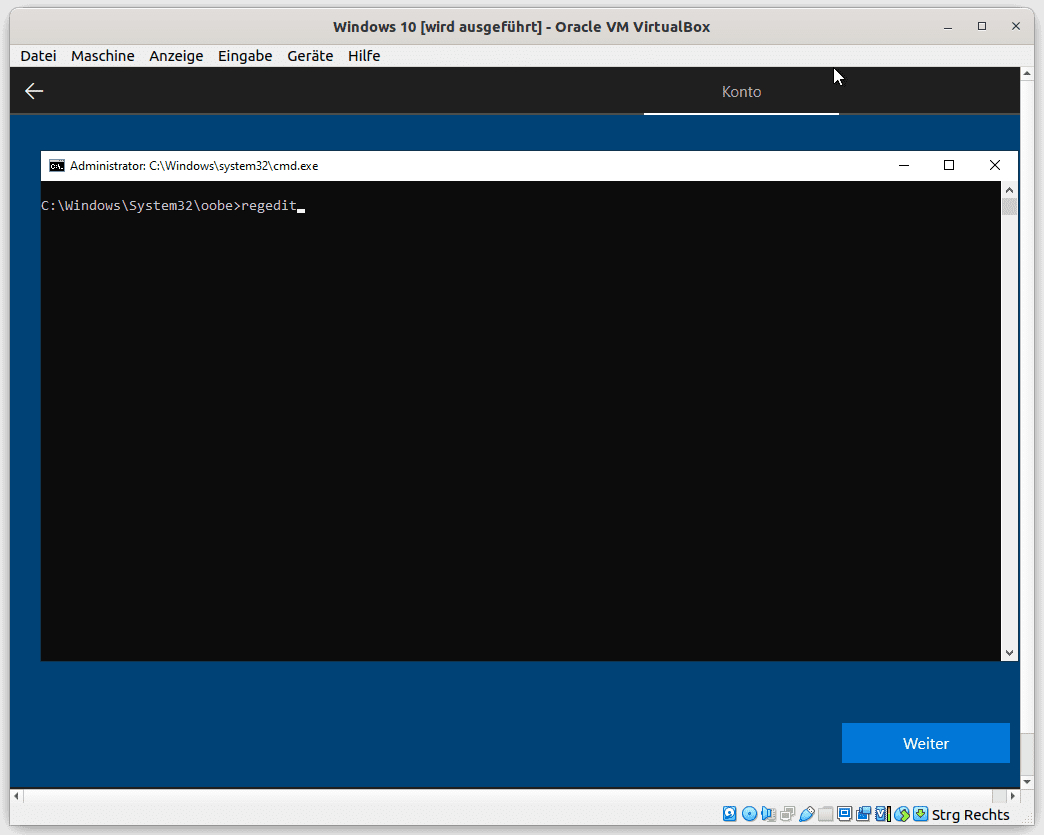
Step 2
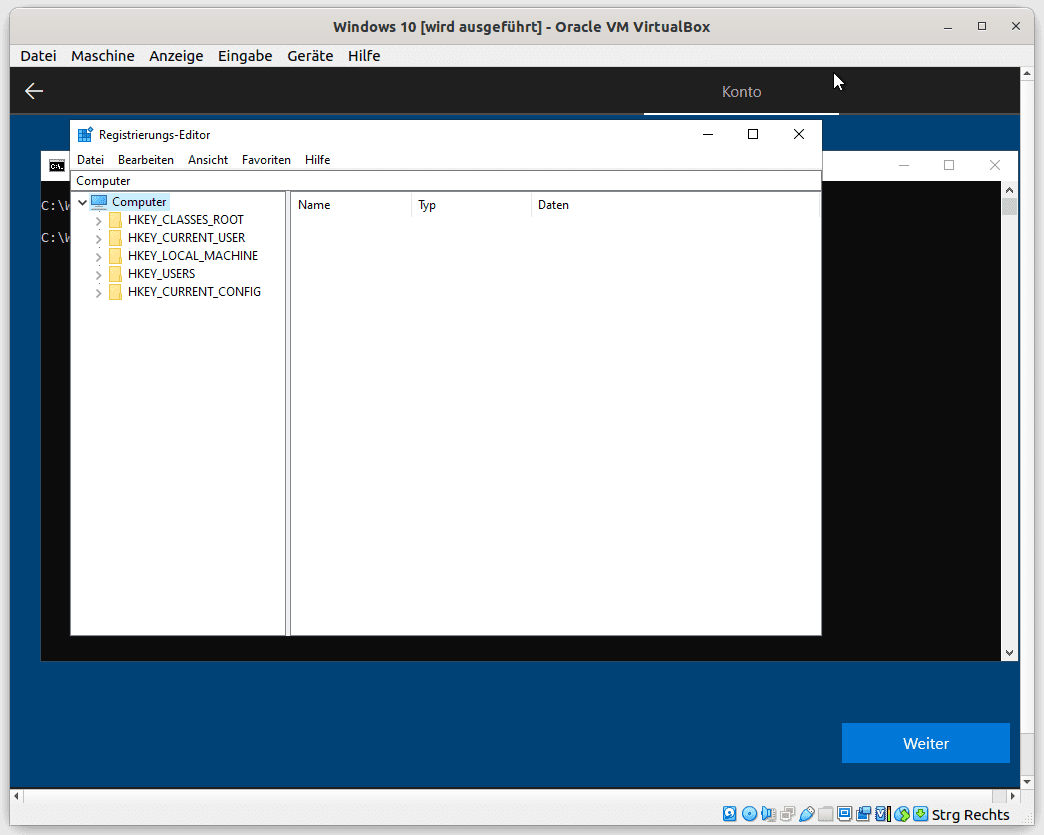
Now we click on the registry key HKEY_LOCAL_MACHINE\SOFTWARE\Microsoft\Windows\CurrentVersion\OOBE.
Or more clearly:
- HKEY_LOCAL_MACHINE
- SOFTWARE
- Microsoft
- Windows
- CurrentVersion
- OOBE
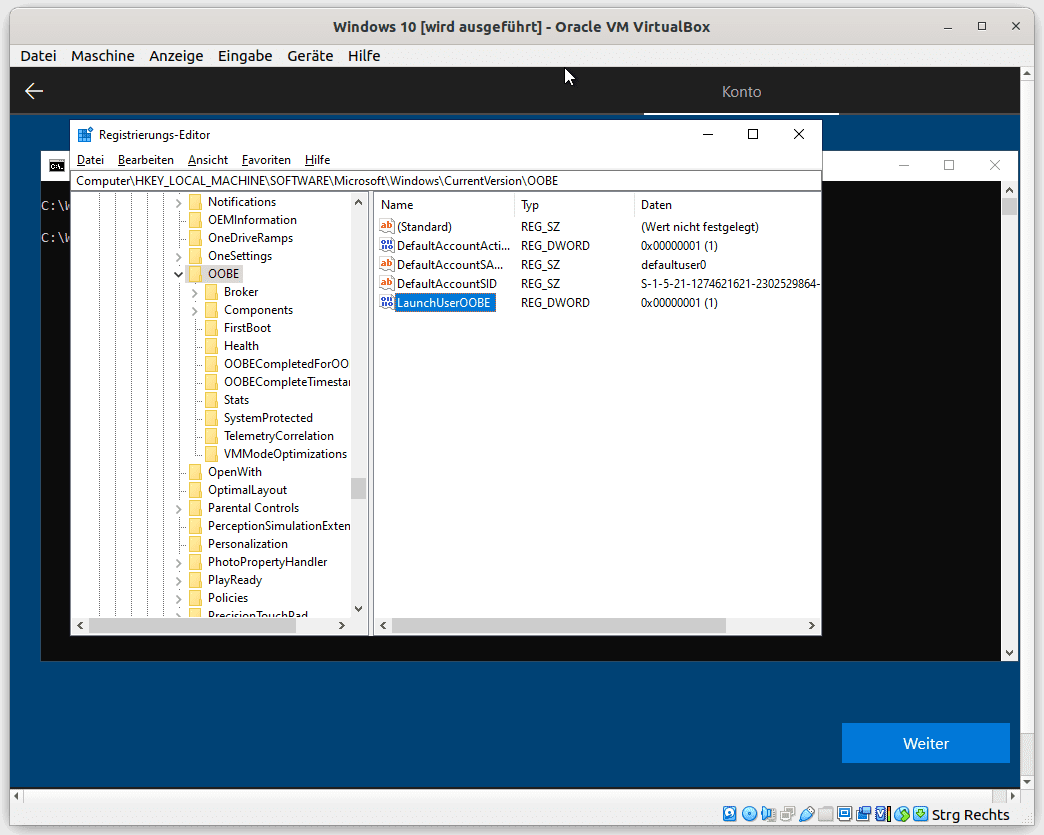
Here we delete the value „LaunchUserOOBE„.
Step 3
Back in the command prompt, we enter „shutdown /L“ and the setup starts again, but this time without the annoying account creation.
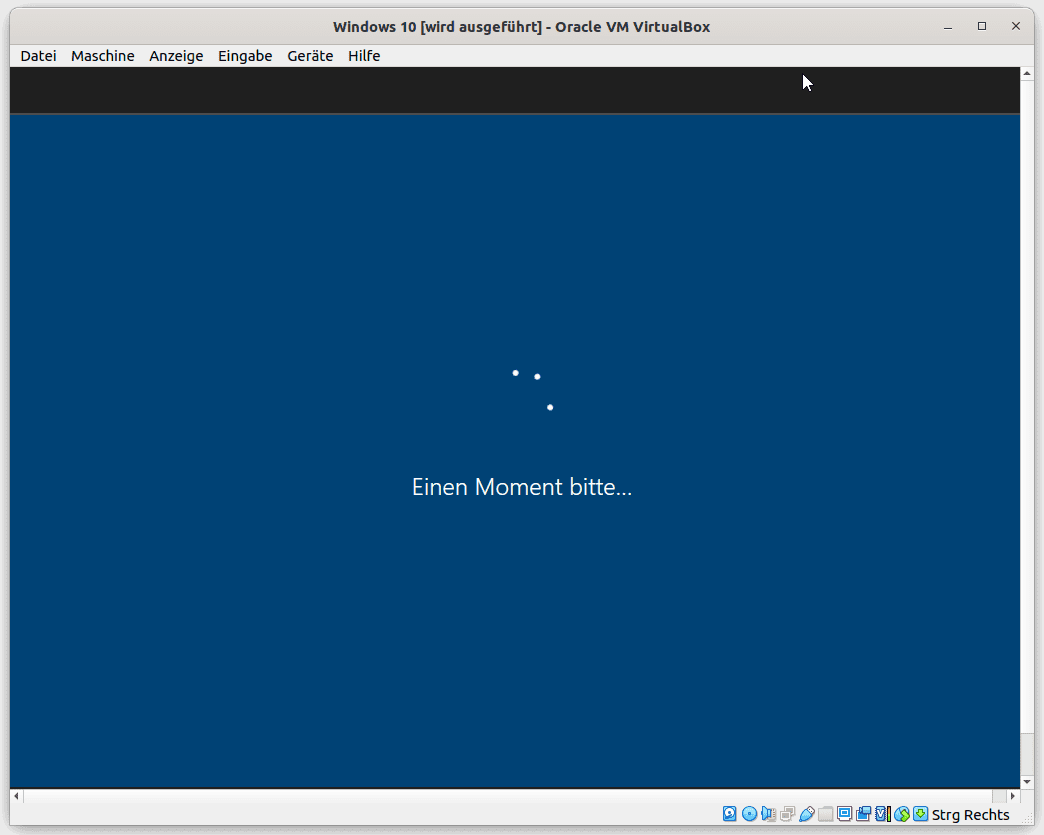
Now we click through the other brazen points of the setup, with which we confirm that Microsoft is allowed to spy on us as it pleases.
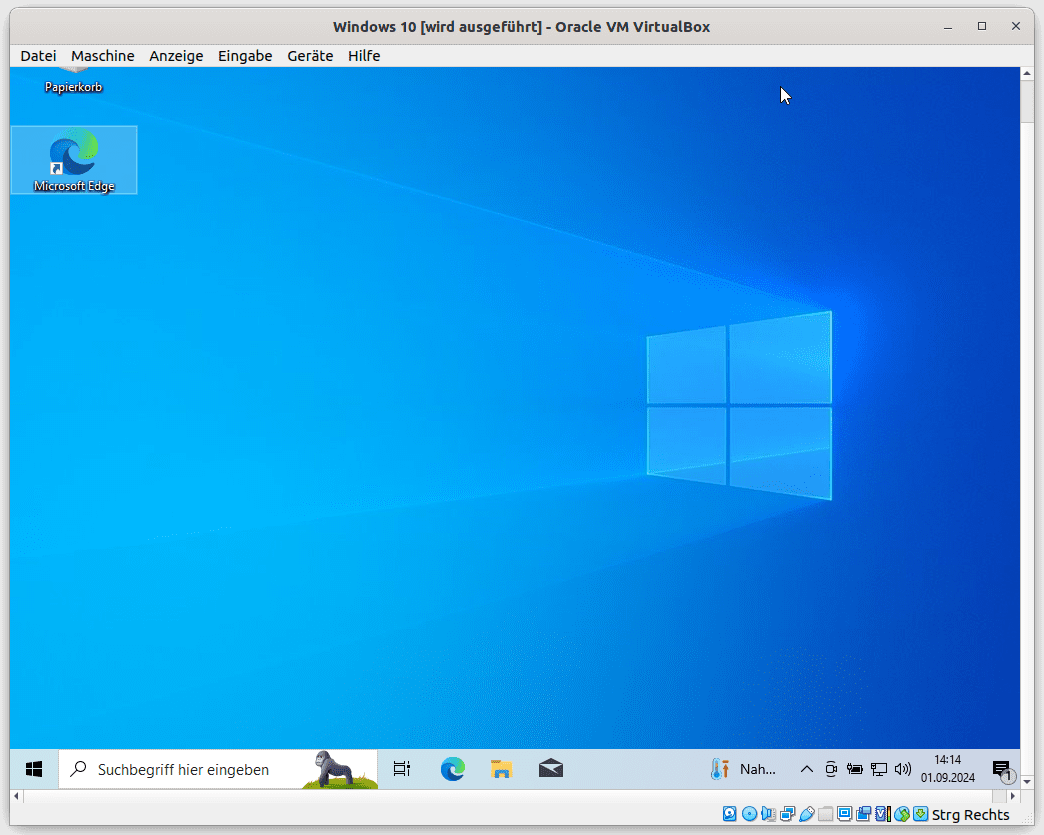
At the end, Windows starts and logs on as user „DefaultUser0„.
And what about Windows Pro?
LOL! Why does a private user need the Pro version? Because he is a power user? Because of BitLocker? That’s only interesting for a notebook and there are other solutions for encrypting the hard drive.
Do you work from home? Then make sure your employer puts your box in the domain so you don’t have to bypass the Microsoft account requirement.
Call for action: Write in the comments if you have a different opinion, but please provide comprehensible arguments.
Huh? Hessi and Windows?
I only needed Windows for a very dubious, ancient Chinese software for a cheap Wiegand access card with which you can create users. Apart from that, I’ve missed absolutely nothing without Windows for 20 years.
Especially not in the smart home sector, where you can no longer win a flower pot with Windows. Every halfway professional area, apart from Office applications, doesn’t use Windows. Why do you think Microsoft introduced the Linux subsystem? So that ambitious users don’t run away from them.
Even most of the latest games run under Linux – and often about 10 % faster than under Windows.
Run!
People, finally turn your backs on Windows. An insecure operating system that strips users naked and uploads their data to the even more insecure cloud will break your necks.
Anyone who believes that Linux or macOS cannot replace Windows is still living in the 1990s and is lying to themselves. Above all, they are afraid of the changeover, which is not as great from Windows to Linux or macOS as it is the other way round.
Windows 11 now looks almost like macOS or Ubuntu, and there’s a reason for that. Microsoft has completely lost touch and is doing what it has been doing for fifty years: copying what has worked for others for years. Now, however, with a completely new dimension of customer coercion, the online and cloud compulsion!
My prediction: in five years‘ time, you will no longer be able to download data from the cloud, but will only be able to access it online with a Windows OS. Access will be granted to interested third parties. And then it will be too late. So run while you still can.
Others are doing the same!
Complete bullshit! Even Google works against Microsoft like Caritas!
Apple
The Microsoft account constraint and the associated cloud constraint as well as the new Microsoft Recall, which automatically saves screenshots and other activities such as the clipboard, pose a significant data protection risk as they also collect sensitive information. Both significantly restrict control over personal data and should therefore be viewed very critically.
Users of macOS and Ubuntu are much freer and less restricted than users of Windows, especially when it comes to coercive measures and data protection.
although macOS also offers a high level of integration into the Apple ecosystem, users still have more control over their data and the use of their device. Signing in with an Apple ID is optional and not required for basic use of the system.
Apple attaches great importance to data protection and the privacy of its users. With App Tracking Transparency (ATT), iOS users can even control tracking by third-party apps.
Linux
Ubuntu and other Linux distributions naturally lead the way in terms of freedom and control. Users have full access to the system and are not forced to log in to a central account, although this is possible.
There are no forced online accounts, but the ability to quickly and easily set up a variety of third-party online accounts, including Microsoft. Access to the associated online storage is seamless via „Files“, the neatly organised equivalent of „Windows Explorer“.
Ubuntu and other Linux systems are highly respectful of user privacy. There is no default data collection or telemetry unless the user explicitly consents.